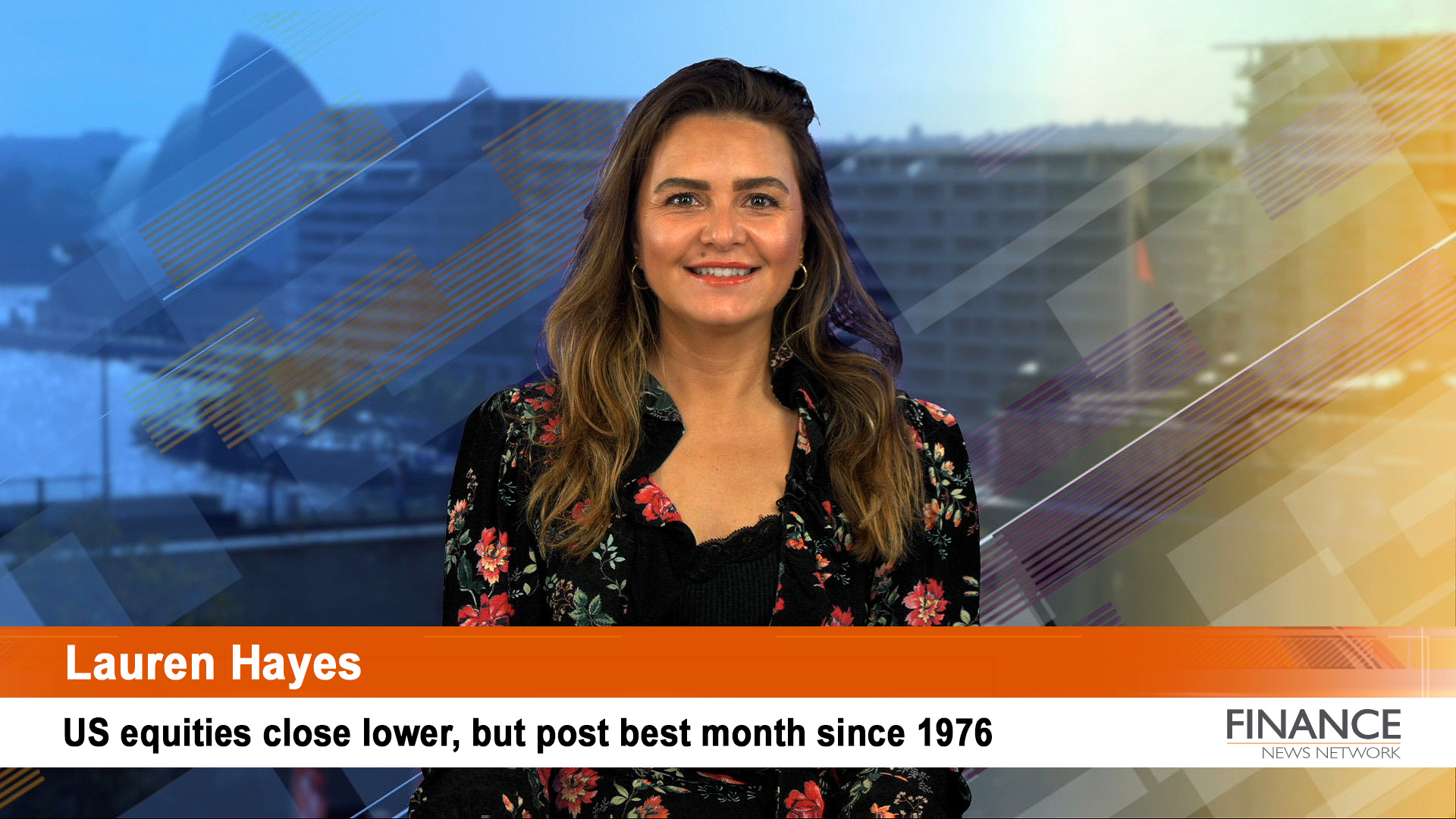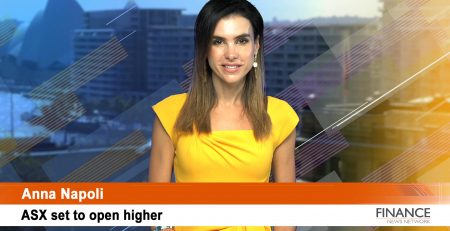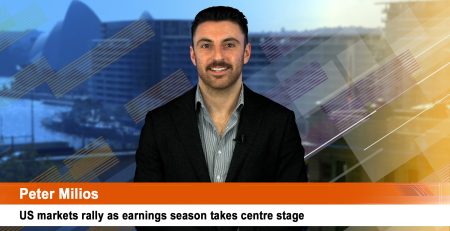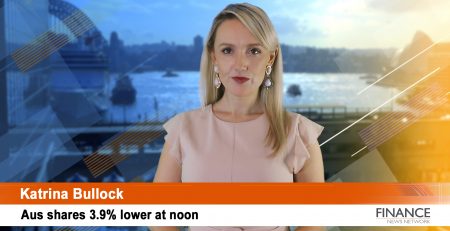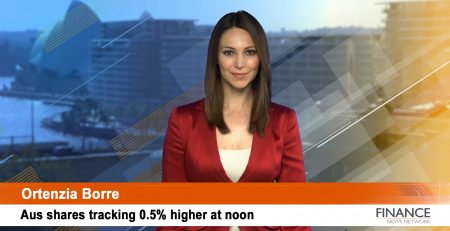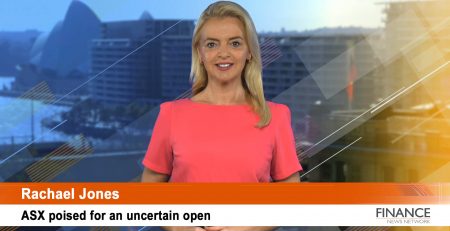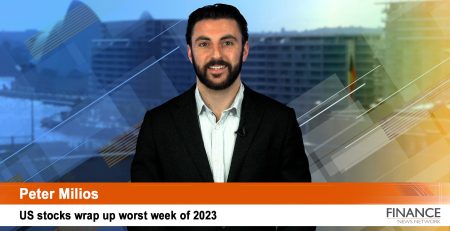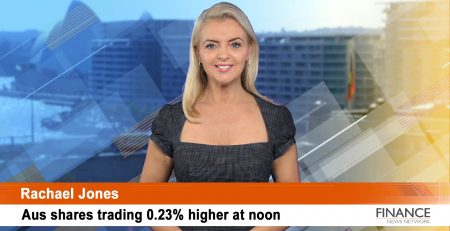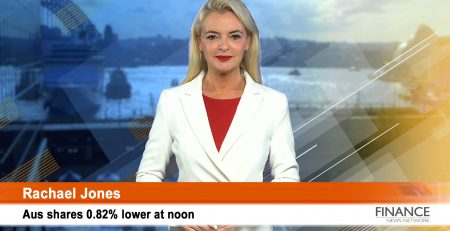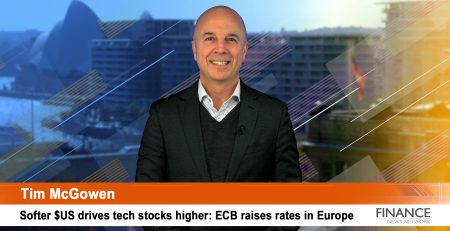US equities close lower, but post best month since 1976
Stocks slipped on Monday, but the Dow capped off its best month since 1976 and the major averages snapped a two-month losing streak.
The S&P 500 closed 0.8 per cent lower, while the Nasdaq Composite slid 1 per cent and the Dow Jones Industrial Average fell 0.4 per cent.
The RBA is expected to increase interest rates by 25 basis points today, particularly in the wake of the larger than expected inflation figures from the September CPI data.
Markets made a huge comeback in October. The Dow guided those gains and closed 14 per cent higher for the month. The 30-stock index had its best month since 1976 as investors bet on more traditional companies, like banks, to lead the next bull. The S&P 500 and Nasdaq Composite closed 8 per cent and 4 per cent, respectively for October.
Traders are preparing this week for the latest Federal Reserve meeting beginning Tuesday. The central bank is widely expected to hike interest rates by 75 basis points on Wednesday. Many on Wall Street are looking for a signal from the Federal Open Market Committee’s statement or Chairman Jerome Powell’s press conference that the Fed could pause its hikes or reduce their size in the near future. Wednesday’s message will be crucial for market expectations going forward.
Earnings season continues this week with reports from Uber, Pfizer and Advanced Micro Devices. Investors are also looking ahead to October’s jobs report due out Friday.
According to JPMorgan, Bond yields are already in a peaking process and that’s a good thing for equities if that belief catches on. If the view of bond yields peaking gains traction, this would go a long way in helping the equity market stabilise, with valuation multiples that would then appear more credible.
With earnings disappointments largely digested by investors, some strategists are anticipating a bounce in growth stocks and some tech names going forward. With the view that growth could bounce vs value, but both growth and value appear better than pure defensives, which are very unattractively priced, even as they are inversely correlated to the bond yields direction.
Across the sectors, it was a fairly quiet session overall but with a distinct risk-off bias as the market closed out a strong October, despite disappointing tech earnings. Big tech, particularly META, semis, homebuilders and precious metals underperformed with the Energy sector leading despite weaker crude.
Some of Meta’s biggest shareholders have lined up to vent their anger at the social media company’s management after it stunned Wall Street with plans to ramp up its loss making effort to build the metaverse. Even after a slide that has wiped 74 per cent from Meta’s stock price in little over a year. However, investors and boardroom experts said there was little outsiders could do to prevent chief executive Mark Zuckerberg using his majority control to plough ahead with a bet that has lost the confidence of Wall Street. This comes after Meta reported last Thursday with shares tumbling 25 per cent.
Some analysts are beginning to compare this year’s tech rout – which has cost the Nasdaq $8 trillion in value so far, with the bursting of the dot-com bubble in 2000–2002, when the Nasdaq lost the equivalent of $8.6 trillion in today’s dollars.
In other news, President Joe Biden today announced he will float the possibility of imposing a 'windfall tax' on energy companies, as his administration aims to combat high gas prices just days before the midterm elections.
And Tesla has reportedly weighed buying a stake in a major miner of battery materials. The electric carmaker had been in talks for up to a 20 percent stake in Glencore, which produces cobalt and nickel. The talks have since cooled, in part because Tesla was unsure of whether Glencore’s coal mining was compatible with its environmental goals.
Currencies
One Australian dollar is flat compared to the US dollar yesterday, buying 63.97 US cents (Mon: 63.99 US cents), 55.80 Pence Sterling, 95.13 Yen and 64.73 Euro cents.
Commodities
Iron ore futures are pointing to a 0.4 per cent fall.
Gold lost $8.80 or 0.5 per cent to US$1636 an ounce.
Silver fell $0.04 or 0.2 per cent to US$19.11 an ounce.
Copper lost $5.05 or 1.5 per cent to US$337.85 a pound.
Oil lost $1.75 or almost 2 per cent to US$86.15 a barrel.
Futures
The SPI futures are pointing to a 0.2 per cent gain.
Figures around the globe
Across the Atlantic, European markets closed mixed. Paris lost 0.1 per cent, Frankfurt added 0.1 per cent and London’s FTSE closed 0.7 per cent higher.
In Asian markets, Tokyo’s Nikkei gained 1.8 per cent, Hong Kong’s Hang Seng lost 1.2 per cent and China’s Shanghai Composite closed 0.8 per cent lower.
Yesterday the Australian sharemarket gained 1.2 per cent to close at 6863.
Ex-dividends
Brickworks (ASX:BKW) is paying 41 cents fully franked
NB Global Corporate Income Trust (ASX:NBI) is paying 0.7111 cents unfranked
Sources: Bloomberg, FactSet, IRESS, TradingView, UBS, Bourse Data, Trading Economics, CoinMarketCap.
Copyright 2022 – Finance News Network
Source: Finance News Network

